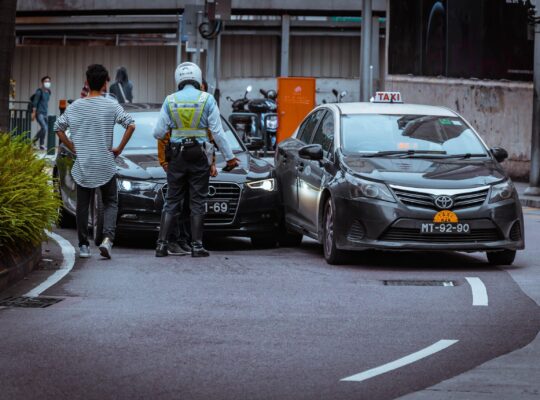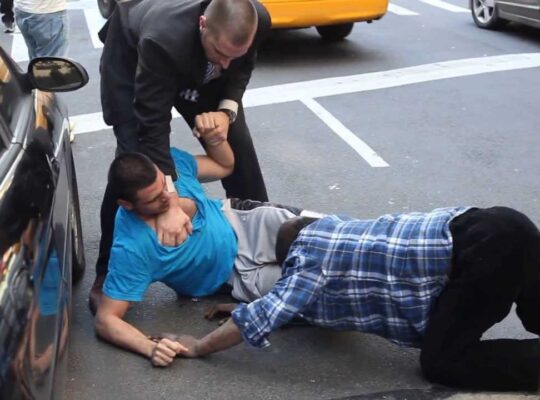Is It Worth Your Life or Freedom?
Your Big Bro
That’s the one question you must ask yourself before engaging in any type of confrontation. Avoiding trouble is key to enjoying your freedom and your life. Brothers, every day the news serves up stories about guys who fell victim to avoidable dangers.
Take the tragic case in Ohio: Ethan Liming, a teenager, was out with his friends shooting random people with a paintball gun. This reckless act led to a fatal confrontation. According to Fox News, “one or more occupants in Liming’s vehicle were riding around the surrounding area shooting a SPLATRBALL Water Bead Blaster at objects and possibly unsuspecting people.” As you might guess, the targeted individuals retaliated violently, leading to Ethan’s untimely death.
This heartbreaking story isn’t just news—it’s a teachable moment. Let’s break down why looking for trouble is a recipe for disaster and how you can avoid it.
Summer Crime Surge: Know the Risks
First, let’s talk numbers. Crime rates tend to spike during the summer months. The Bureau of Justice Statistics reports that violent crime rates are higher in summer than in any other season. Increased outdoor activity and social gatherings contribute to this uptick. Understanding these patterns helps you stay vigilant and avoid becoming another statistic.
Avoiding Trouble: Road Rage and Violent Crimes
Furthermore, road rage incidents have been on the rise. The AAA Foundation for Traffic Safety notes a significant increase in aggressive driving and confrontations on the road. Violent crimes, including assaults and homicides, also show a disturbing trend. The FBI’s Uniform Crime Reporting (UCR) Program reveals a steady increase in violent crimes over the past few years. Knowing this, let’s explore why avoiding conflict is crucial.
Avoiding Trouble: Armed Individuals
You never know who’s packing heat. Whether it’s a gun, knife, taser, or even just a well-trained pair of fists, the threat is real. With concealed carry laws becoming more lenient nationwide, a simple misunderstanding can turn fatal in an instant. De-escalation is your best defense. As Bruce Lee once said, “Knowing is not enough; we must apply. Willing is not enough; we must do.” It takes real strength to walk away from a potential fight rather than letting anger dictate your actions.
De-escalation Methods
- Verbal De-escalation: Use calm, non-threatening language. Statements like, “I’m sorry, I didn’t mean to upset you,” can defuse tension quickly.
- Create Distance: Step back and give the person space. Physically removing yourself from their immediate vicinity can help lower the threat level and show you’re not a danger.

Unhinged Individuals
Even if your adversary isn’t armed, they might be completely unhinged. Dealing with someone mentally unstable, whether due to drugs or psychological issues, can escalate things quickly and unpredictably. America sees daily incidents of random violence, from stabbings in broad daylight to people being pushed onto subway tracks. Do you really want to risk crossing someone who has no regard for human life? Steer clear of these situations at all costs.
De-escalation Methods
- Stay Calm: Keep your voice steady and avoid sudden movements. Demonstrating calmness can help to de-escalate the situation and prevent the individual from becoming more agitated.
- Empathy and Listening: Show understanding and listen to what they are saying without interrupting. Often, validating their feelings can prevent an outburst.
Looking for a Fight
Your potential attacker doesn’t need to be crazy or armed—sometimes, they’re just looking for an excuse to lash out. People with chips on their shoulders are often quick to react violently to perceived slights. Ethan Liming’s killers weren’t armed but were ready to fight over a trivial provocation. Avoiding conflict isn’t cowardice; it’s wisdom.
De-escalation Methods
- Non-Confrontational Body Language: Avoid aggressive postures like crossing your arms or making fists. Open, relaxed body language can signal that you’re not a threat.
- Agree to Disagree: Sometimes, walking away is the best option. Simply saying, “You’re right, let’s not argue about this,” can prevent the situation from escalating. Just be aware: the moment you turn your back, you leave yourself vulnerable to a sneak attack. Have your guard up.
“The best fighter is never angry.”
Bruce Lee
De-escalation: A True Test of Strength
In today’s world, driven by viral prank videos and unchecked social media behavior, there’s a pervasive belief that actions have no repercussions. This false sense of security can lead to dangerous real-world outcomes. Avoiding trouble and learning to de-escalate potentially hostile situations is a vital skill. Every man will face potential conflicts, but picking your battles wisely is key. Not only could you avoid becoming a victim, but you could also avoid the legal and moral consequences of being the aggressor.
Consider this: what if you win the fight and land a fatal blow? Are you prepared for the legal fallout, including possible jail time? Could you live with the guilt? Remember, when you go out of your way to disrespect someone, you’re rolling the dice with your life. The world needs strong men who can navigate these challenges wisely.
Stay safe, stay smart, and avoid unnecessary conflict. The world is watching, and we need men who can rise above and lead by example.
– Your Big Bro











